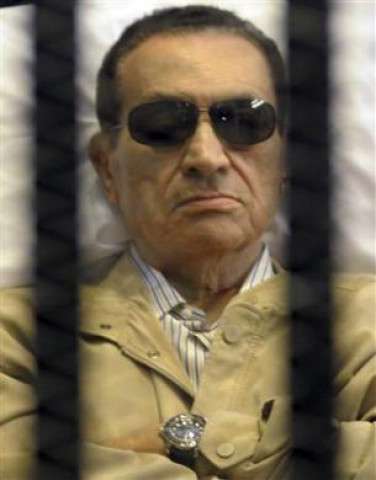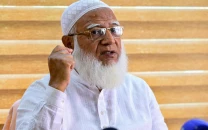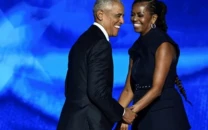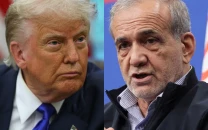Saudi govt offered $10b for Mubarak's release: Wikileaks
Leaked documents suggest the Kingdom wanted its long-time ally to be released

PHOTO: REUTERS
The deposed autocrat, who has been a long-time Saudi ally, is imprisoned in Egypt and facing trials in courts after the revolution in Egypt.
Out of the several documents released by Wikileaks, some suggest that one leader in Brotherhood had said the group could ensure Mubarak would not go to prison in exchange of $10 billion.
Read: Berlin unveils statues of whistle-blowers
However, a handwritten note on the document said paying ‘ransom’ for Mubarak was ‘not a good idea’ because the Brotherhood could not prevent his incarceration.
On Friday, the organisation released what it said was the first part of more than a half-million cables and other documents from the Saudi Foreign Ministry, dubbing it as “The Saudi Cables.”
WikiLeaks did not say where it obtained the documents, but it referred in a press release to Riyadh's statement in May that it had suffered a breach of its computer networks, an attack later claimed by a group calling itself the Yemeni Cyber Army. Saudi state and private media on Saturday ignored the release.
Read: The Snowden effect
Meanwhile, Saudi Arabia has warned its citizen to ignore thousands of its diplomatic documents leaked by Wikileaks which it says are “fake”.
On Sunday, Saudi foreign ministry spokesperson Osama Naqli warned the country not to "allow enemies of the state to achieve their intentions in regards to exchanging or publishing any documents" and said "many of them had been fabricated in a very obvious manner".
Naqli said investigations were under way and that the ministry would prosecute those involved, a statement on the Saudi news agency said.
The whistle-blower website has in the past also leaked sensitive diplomatic documents pertaining to Pakistan, India and Iran.



















COMMENTS
Comments are moderated and generally will be posted if they are on-topic and not abusive.
For more information, please see our Comments FAQ